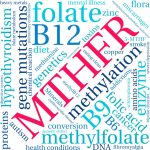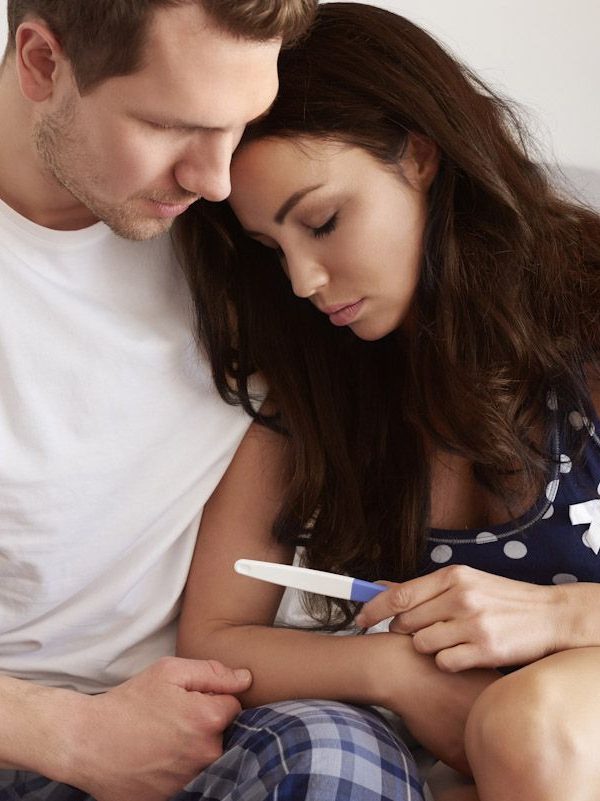
What is MTHFR and how can it affect Fertility?
2 Aug 2019
What is Premature Ovarian Insufficiency (POI)?
1 Dec 2019
15 – 20% of infertility couples are diagnosed with ‘Unexplained Infertility’.
This can be a devastating and incomprehensible diagnosis to receive.
You may have been told, “everything looks fine”; “you’re both perfectly healthy and should be able to conceive”; “just relax and it will happen”!
Many couples who seek my expertise after being given this news, say that they feel terribly upset and at the same time frustrated that they don’t have any tangible reason for this diagnosis.
They believe that because they don’t know what’s causing this problem, it is out of their control and this gives them a sense of hopelessness.
What constitutes a diagnosis for ‘unexplained infertility’?
It’s important to know that the diagnosis of unexplained infertility can only be made, ‘after a couple has been trying to conceive for at least one year and has had comprehensive investigations done.’
This means that all the tests the couple have had indicate that she is ovulating, her fallopian tubes are not blocked and his sperm has ‘reasonable parameters (number, motility and morphology)’… and so it appears, there are no identifiable reasons for their inability to conceive.
I prefer the term ‘unexplained subfertility’.
In my opinion, the term ‘unexplained infertility’ is not accurate. It suggests there is no chance that you will conceive.
I prefer the term unexplained ‘sub-fertility’. This more accurately explains the fact that there is still hope you will conceive because they may have a few milder issues that need to be uncovered and addressed, rather than one major obvious factor. There may be identifiable reasons that can be explored.
Are there limits to diagnostic testing of unexplained infertility?
Unfortunately the diagnostic testing we have available to date, can only identify some of the major reasons a couple may have difficulty conceiving, but they aren’t able to identify all the reasons.
In my experience, there are often subtle factors (affecting both partners’ health) that could impact conception.
As an Integrative Fertility Naturopath, qualified in DNA/Nutrigenomic analysis, I am able to help you understand the role your unique genetic variations can play in your health and fertility.
Once I’ve analysed your DNA, I will provide you with your own Personalised Health and Fertility diet and lifestyle plan that you will help improve not only your health and wellbeing, but your chances of getting pregnant and having a baby.
Can Naturopathy help with unexplained infertility?
I always take a thorough history of each and every patient.
Besides being able to offer DNA/ Genomic analysis, I would always intensely analyse your pathology results (blood, urine, sperm) according your medical reference ranges which apply to the general population as a whole.
These ranges apply to the general population as a whole and therefore are too large and not specific enough for me to be able to identify and hone in on irregularities or imbalances from a fertility perspective.
BabyCreate’s Optimal Reference Range
After many years treating couples who have been diagnosed with ‘unexplained’ infertility, I have formulated my own ‘fertility’ reference ranges. These are specific to your fertility needs.
I call it my ‘Optimal Pathology Reference Range for Fertility’.
My suggested ideal reference window is much narrower than the general reference range.
Further testing might be necessary
During the consultation, I will address each and every result that doesn’t satisfy my requirements and discuss them with you.
And if necessary I might suggest other tests you can do – such as that DNA/Genomic testing I mentioned before, Functional Medicine testing, Microbiome or possibly additional Thyroid testing – depending on what’s needing a deeper investigation.
Personalised Treatment Regime
Once I’ve collated everything, I will be able to work out a treatment regime that should address all the inadequacies, deficiencies or imbalances I have detected. These may include nutrient deficiencies, metabolic, hormonal imbalances, degree of stress, generalised inflammation and environmental toxin exposure.
It’s a team effort – let’s work together!
I will then give you appropriate individualised lifestyle and dietary advice as well as a prescription for whatever I feel is necessary to help improve their overall heath and fertility.
I always make sure you understand that the whole process is a team effort. You will need to work with me to make appropriate changes to improve your health and hence your chance of a successful pregnancy.
Joanne Lipinski – Fertility Naturopath Melbourne
